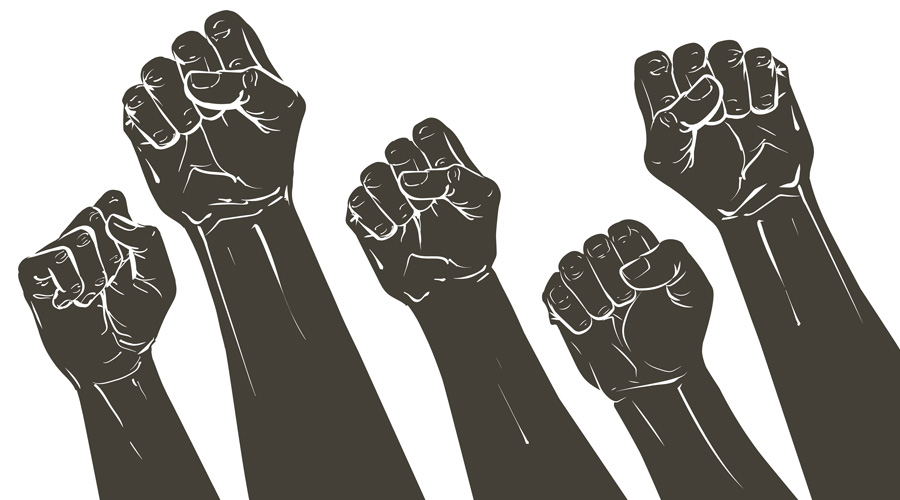The fatal assault on a Dalit child in Rajasthan by his teacher for touching a drinking-water pot meant for dominant castes has prompted academics to recall a traumatic experience of Babasaheb Ambedkar and underline how the social evil has survived 75 years of freedom and led to unspeakable tragedy in 21st-century India.
They also stressed that lawmaking alone would not help ensure social equality unless steps are taken to change a mindset that seeks endorsement from the scriptures.
Indra Meghwal, aged 9 and a Class III student at Saraswati Vidya Mandir in Jalore district, died on Saturday. The alleged assault on him took place on July 20 after the boy touched the pot “reserved” for higher-caste teachers.
Chief minister and Congress veteran Ashok Gehlot said the accused teacher had been arrested, and a compensation of Rs 5 lakh would be given to the next of kin of Indra.
The teacher, Chail Singh, 40, has been charged with murder and sections of the Scheduled Caste and Scheduled Tribe (Prevention of Atrocities) Act.
N. Sukumar, a political science faculty member at Delhi University, said the incident reflected the attitude of the dominant castes to whom Dalit lives do not matter.
Sukumar recalled that Ambedkar, too, had faced discrimination in his school for drinking water. In his book Waiting for a Visa, Ambedkar wrote that in school, children from the higher castes could go to the water tap, turn it on and quench their thirst. All that was necessary was the teacher’s permission.
“But my position was separate. I could not touch the tap; and unless it was opened by a touchable person, it was not possible for me to quench my thirst,” Ambedkar wrote.
“In my case, the permission of the teacher was not enough. The presence of the school peon was necessary, for he was the only person whom the class teacher could use for such a purpose. If the peon was not available, I had to go without water. The situation can be summed up in the statement — no peon, no water.”
On Sunday, Sukumar said: “When animals are celebrated, Dalits are slaughtered at the time of Azadi Ka Amrit Mahostav. Nothing much has changed with the mindset of the people since the days Ambedkar had to face similar discrimination.”
Former UGC chairman Sukhadeo Thorat said the teacher in this case was following the social norms and practices amid which he grew up. Neither the government nor those belonging to the high castes ever tried to abolish the norms, which seek legitimacy from Hindu scriptures.
“The political parties and the high-caste people believe that there are legal remedies for caste-based atrocities and discrimination. They never raise their voice against the social practices which perpetuate such atrocities. There is no sensitisation programme against social inequality,” Thorat said.
“Rather, caste consciousness dominates social and religious events. The higher castes are increasingly creating their own organisations for promoting their caste interest. Under such circumstances, this problem of social inequality will only aggravate further, marginalising the Dalits and the backward classes.”
Thorat underscored that Ambedkar had fought his entire life for social equality. Among the higher castes, Mahatma Gandhi had started a sort of social movement against untouchability and caste practices. After his death, few from the higher castes took the cause up.
“The law alone cannot stem atrocities and discrimination. Governments, both at the Centre and in the states, need to create awareness against caste practices, which mainly flow from the Hindu scriptures. People need to be socialised on modern values. Proper action plans should be taken up,” Thorat said.
Ganga Sahay Meena, an associate professor of Hindi at Jawaharlal Nehru University (JNU) who hails from Rajasthan, said the feudal caste hierarchy was supported and nurtured by the political parties in power.
“The social situation seems to be peaceful in Rajasthan. But it is because the oppressed people have internalised oppression. They are used to atrocities. Most of the time, the cases are settled through compromise, and the victims are forced to accept some compensation and forget. They do not have any social capital or governmental support to fight,” Meena said.
Caste inequality is considered normal by all in rural areas, he added. Matters are a little better in government schools and elite private schools but remain pathetic in budget schools.
He said the reaction of chief minister Gehlot that cases had been registered and a Rs 5-lakh compensation would be given seemed to suggest he thought these were adequate measures. When Gehlot had announced a compensation of Rs 50 lakh for a man butchered by alleged terrorists, Rs 5 lakh for the Dalit family beats logic, Meena said.
Beena Pallical, secretary of the NGO National Campaign for Dalit Human Rights, said: “The teacher is supposed to teach and (encourage) the students to practise democratic values. Here the teacher himself is killing a child for touching a water pot…. It shows freedom has no meaning for Dalits. We are free from colonial rule but not free from the clutches of caste,” Pallical said.
She said people belonging to the dominant castes never wanted to give up their caste privileges. They want to suppress others and never accepted constitutional values, she said.
The SFI, the CPM-backed students’ wing, said the Indian education system still remained Brahmanical. “Even after 75 years of our nation’s independence, the Dalits and other vulnerable sections of society have not attained the freedom that they deserve,” it said in a statement.
State BJP president Satish Poonia said such incidents happened when the state government and chief minister were weak. “Incidents of Dalit atrocities have happened one after another in the last three-and-a-half years. This happens when the state government, chief minister are weak. The guilty must be punished at the earliest,” Poonia told reporters.
“When the country is celebrating the 75th year of Independence, such an incident forces us to think about where we are standing,” he said.
Additional reporting by PTI


